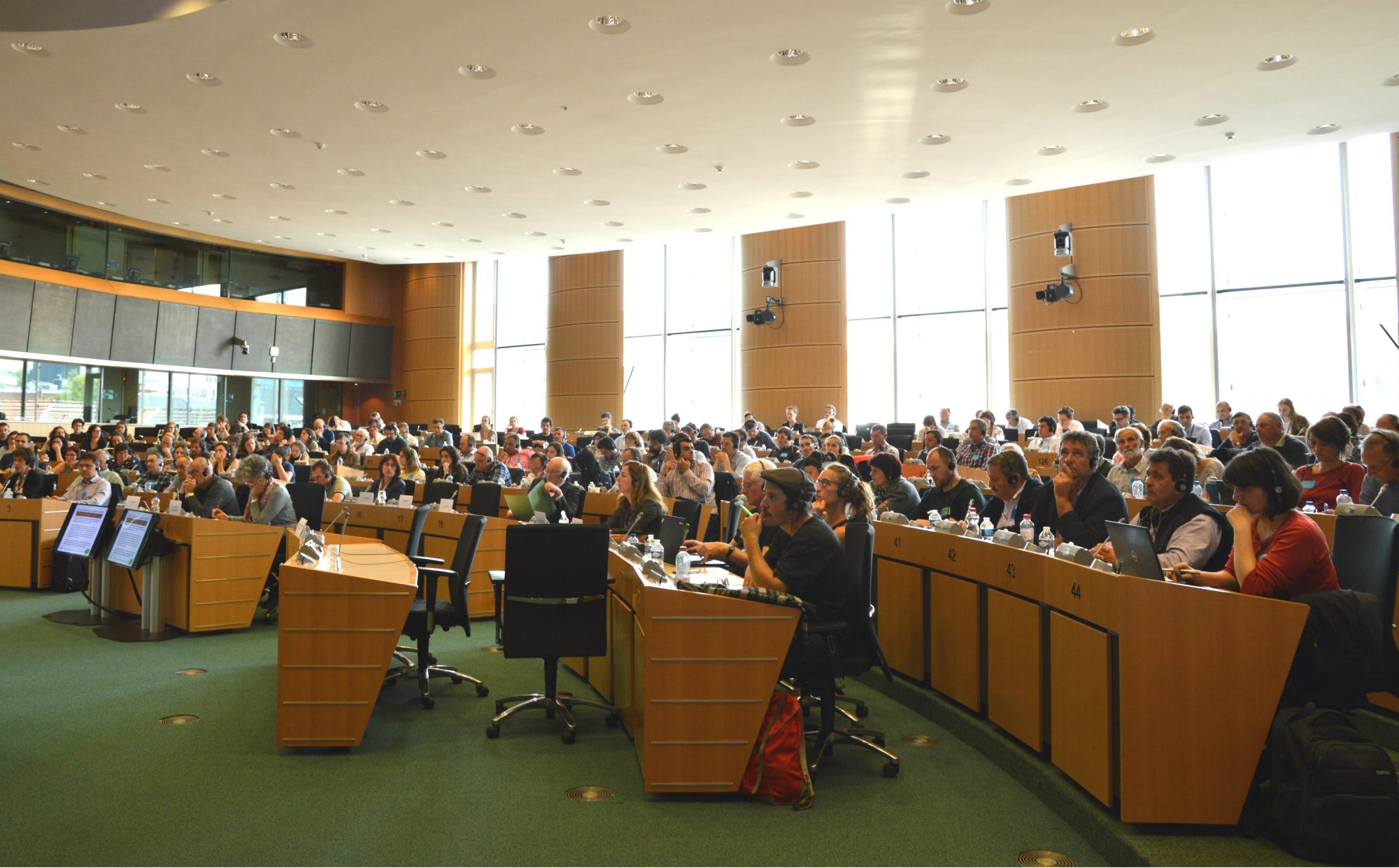The future of the CAP: small-scale farmers speak out from the European Parliament

24 May 2018:Today, ECVC and members of the European Parliament* came together at the European Parliament to support a CAP for small-scale farmers. The conference about the future of the European Union’s common agricultural policy brought together more than 130 small-scale farmers from different European regions**. Together with representatives from EU institutions and civil society organisations, they tackled the most delicate and contentious issues in relation to the current CAP reform.
How can our current agricultural and food system respond to the present challenges it faces? In response to the event’s opening question, ECVC panellists demonstrated that in terms of solving challenges posed by climate change, small-scale farming can make an excellent contribution by supporting unique agro-biodiversity as well as various wild animal and plant species. Moreover, small-scale farming can cool the plant. On the one hand, it is less dependent on inputs, the production of which incurs huge energy costs and, on the other hand, it does not rely on delocalised consumption, which also leads to enormous greenhouse gas emissions.
Small-scale farming also helps to sustain the production model, increase security within the agrifood chain, drive the economy as well as ensure territorial and social cohesion within the EU. In this regard, Jose Miguel Pacheco, a member of the ECVC coordinating committee, emphasised that “given that they do not export the capital gains generated by their activity to other territories, small-scale farmers are the drivers of the local economy. Contrastingly, industrial agriculture imports a large part of its production and, frequently, its labour by resorting to large agencies for temporary work. As a result, this exports the capital gains generated in that territory. We need not look further. Strengthening the performance of small-scale agriculture is essential for the social and territorial cohesion of Europe.”
ECVC stated its satisfaction with the Commission’s proposal to limit financial aid to 60,000 EUR per farm, but added that it is important to take the active farmers who work there into account, as well as the economic and social conditions of the workers and day labourers.
Moreover, cuts to the agricultural sector in the new European budget were considered a setback. Taking into account the European Commission’s annual inflation forecast of 2%, the planned cut for the agricultural sector would in fact be equivalent to 17%. In order to have an ambitious CAP and to ensure the transition of the agricultural system, there needs to be solid financing.
Linking the struggle for a fair CAP to the fight against free trade agreements (FTAs), Andoni Garcia, who is a member of the ECVC coordination committee, insisted on “the need for public policies based on food sovereignty to promote and protect the healthy and sustainable agricultural and food model. What does this involve? In part, the public regulation of markets, the control of production and allowing many more farmers into the production chain. However, nowadays, WTO agreements and FTAs such as Mercosur-EU, CETA and JEFTA undermine all of these. This causes the deregulation of markets and destroys sustainable agriculture and food systems.”
Speaking of the consequences of the CAP for young farmers, Elisabeth Fresen, a young farmer and member of the national board of the AbL (Germany), reiterated that “if less than 1% of CAP payments go to young people, the cause lies in the unfair system of distributing aid per hectare which favours large farms and those with the lowest social benefits. Many young people want to set up in a modest structure, they need adapted help to bring about their project of sustainable local food production.”
In their final interventions, the ECVC delegates shared their profoundly critical view of the current EU policies that are in force. Geneviève Savigny concluded by stating that “it will be difficult, if not impossible, to achieve the CAP aims that the Commission has drawn up if it continues with its current policies. These lead to lower prices, greater instability, faster and more serious crises over time and a reduction in CAP financial support or a lack of distribution of aid to healthy and sustainable agricultural and food systems. These factors cast doubt over the European Commission’s proposals.”
Watch the full conference here
Click here for the latest ECVC document on the CAP: COMMUNICATION, FINANCIAL FRAMEWORK, MARKETS DIRECTIVE AND EUROPEAN COMMISSION DRAFT LEGISLATIVE PROPOSAL
Click here for ECVC’s position on NEW ENTRANTS TO AGRICULTURE
Note to editors:
* Lidia Senra – GUE/NGL; Martin Hausling- Greens/ALE ; Eric Andrieu – S&D
** Portugal, Spain, France, Belgium, Germany, Austria, Romania and Italy
This post is also available in Español.
